Persian Carpets That Blend Craft, Heritage, and Everyday Function
We offer a curated collection of Persian Carpets made by skilled artisans with 15+ years of experience. Each carpet is hand-knotted using traditional methods and high-quality materials. Our focus is on providing designs that fit both classic and modern spaces. Whether you’re decorating your home or investing in a lasting piece, our Persian Carpets combine craft, comfort, and durability. With over 15+ years of experience in sourcing and quality control, we ensure every rug meets high standards. Browse our collection to find Persian Carpets that bring warmth, value, and history into your home. Quality you can trust, from people who know.
- 1000+ Carpets Catalogue
- Fully Customizable Carpets
- Fire-Resistant Carpet Options
- Antibacterial Carpets
- Easy maintenance
- 15+ Years of Proven Expertise
- Flexible Payment Options
- Free Interior Design Consultation
Over 15 years of carpets expertise—trusted, tailored, timeless Carpet solutions.
15K happy carpet customers—proven trust, comfort, and lasting quality.
30-day money-back guarantee—shop with confidence, no risk involved.
Get Up to 30% Off on Premium Persian Carpets – Limited Time Sale
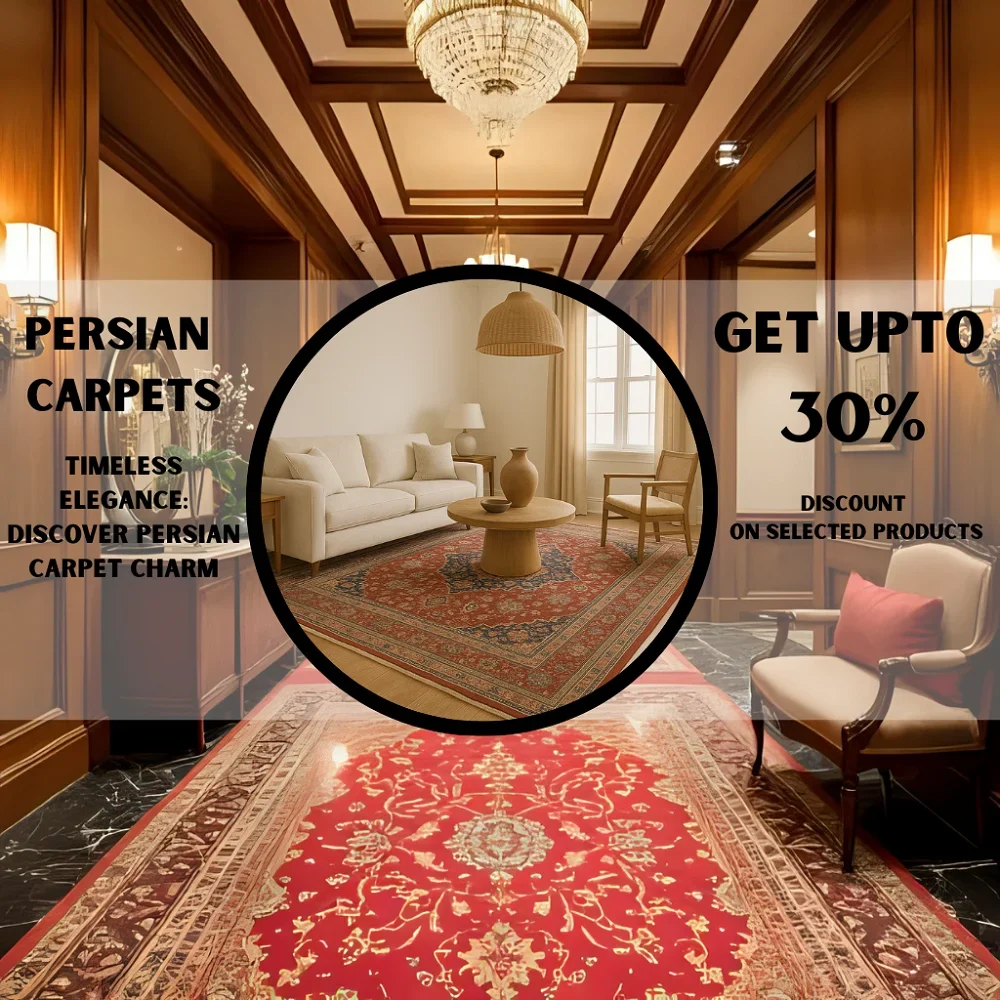
Enjoy exclusive discounts on our finest hand-knotted Persian carpet rug pieces. Shop now and save up to 30% during our Sale Offers. This is your chance to buy the best products crafted with care and tradition. Each Iranian carpet brings lasting value to your space. Don’t miss these power deals – rich design, premium quality, and unbeatable discounts. Upgrade your home today with timeless pieces at unmatched prices. Sale ends soon.
Persian Carpets for Residential Use and Commercial Spaces
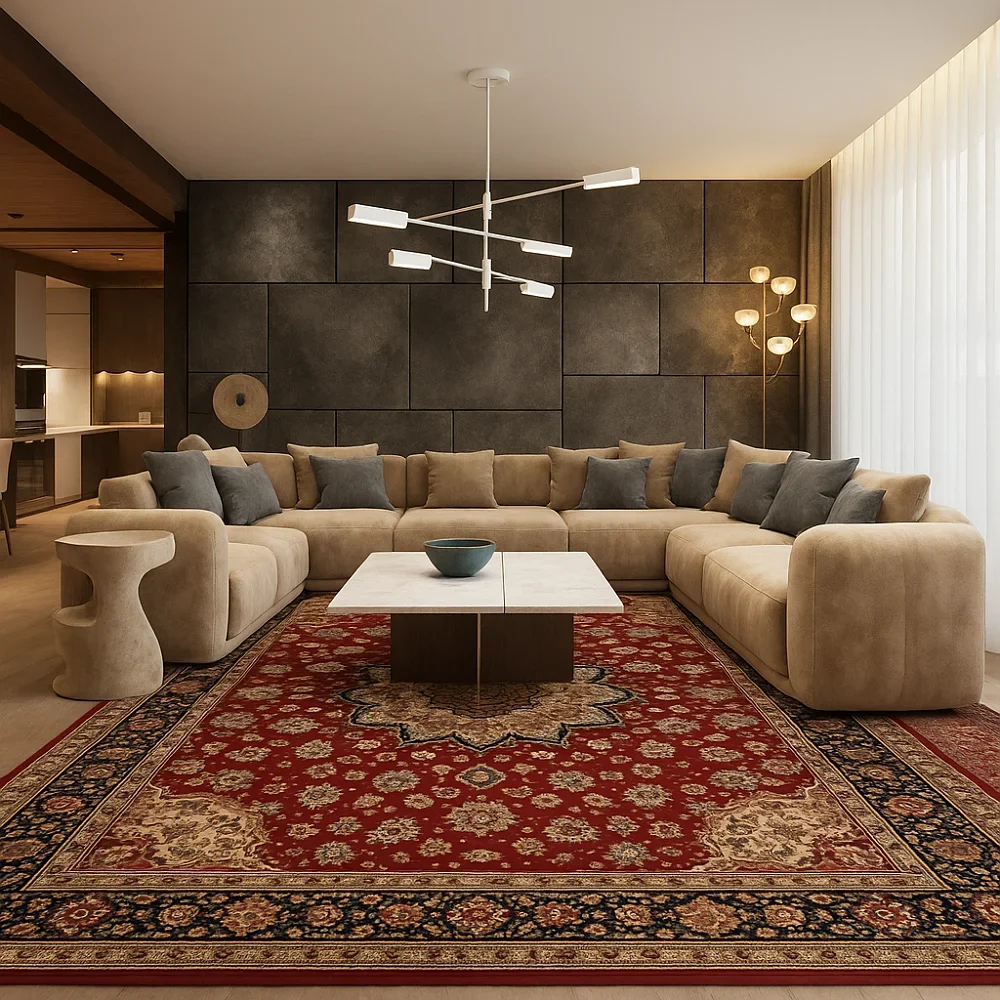
Residential Persian Carpets
Add warmth and character to your home with our hand-knotted Persian rugs & carpets. Designed for everyday comfort and lasting beauty, each rug enhances your living space with rich texture and tradition. Choose from timeless patterns that suit bedrooms, living rooms, or entryways. Make your home feel complete with style that lasts.
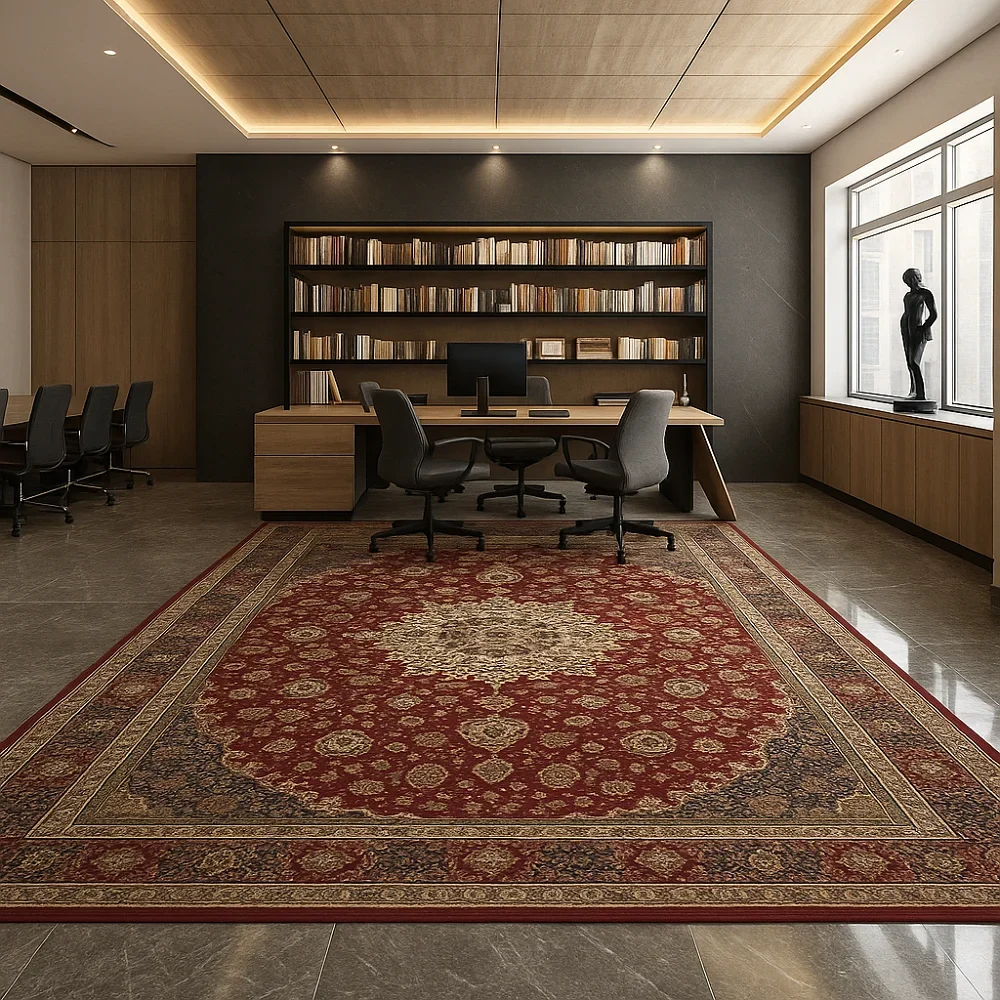
Commercial Persian Carpets
Upgrade your office, hotel, or showroom with durable, eye-catching iranian carpets dubai. Built to handle daily foot traffic, these rugs bring culture and distinction to any professional space. Impress clients and guests with classic craftsmanship that balances function and form. Invest in carpets that support your image and space needs.
Explore the Distinct Types of Persian Carpets We Offer
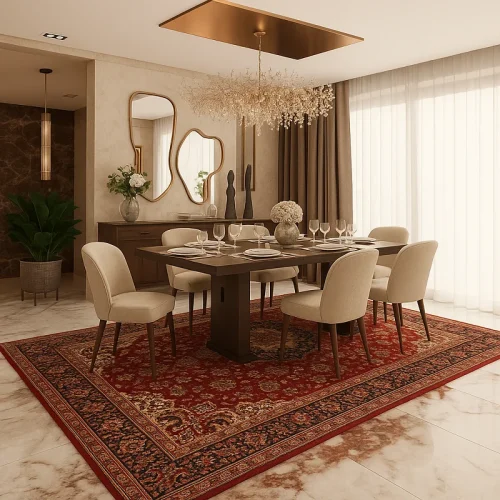
Known for precise detailing and floral patterns, Tabriz carpets bring elegance to formal spaces with fine knots and traditional craftsmanship.
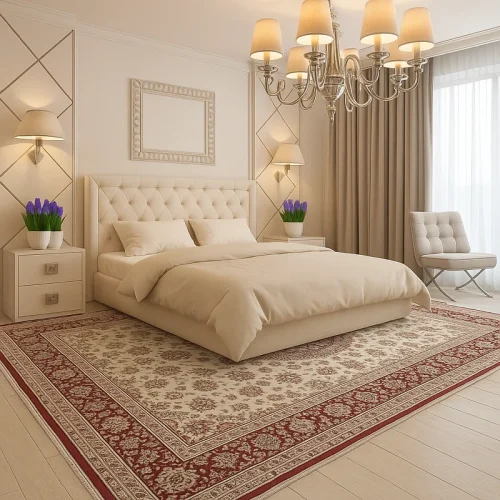
These rugs feature deep reds, medallion centers, and intricate motifs—ideal for classic interiors seeking warmth, balance, and symmetry.
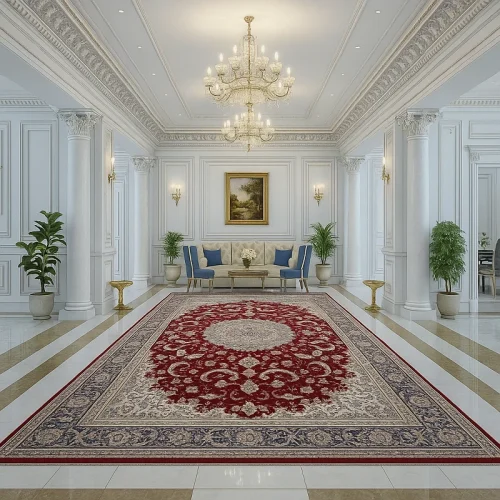
Subtle blues and ivory tones define Nain carpets, crafted with precision for calm, modern spaces that need a soft traditional touch.
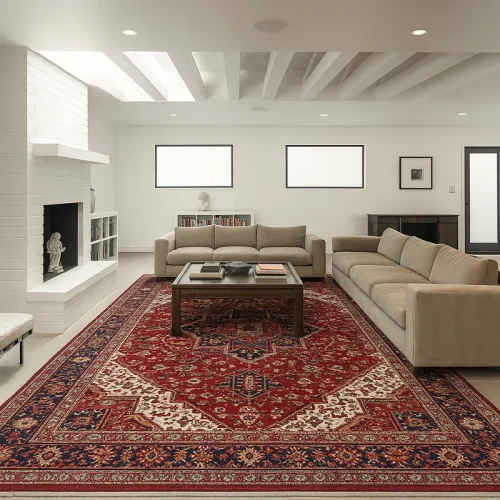
Durable and bold, Heriz rugs feature strong geometric designs and earthy colors, suited for high-traffic rooms and casual living areas.
Where to Use Persian Carpets for Style, Comfort, and Function
- All
- Living Room
- Bedroom
- Office
- Hallway
- Hotel
- Dining Area
Persian Carpet Installation Process

Site Visit
Our team visits your space to take exact measurements and assess the layout for proper carpet placement.

Carpet Selection
We help you choose the best Iranian carpet based on room size, foot traffic, and interior style.

Delivery and Setup
Carpets are delivered on time and carefully placed to fit the space without wrinkles or misalignment.

Final Check
We inspect the installation with you, ensure satisfaction, and provide care tips for long-term use.
Why We’re the Best Option for Persian Carpets

At Risala Furniture and Interiors LLC, we offer authentic, hand-knotted Persian rugs & carpets sourced directly from skilled artisans. With over 15 years of experience, we ensure quality, durability, and unique designs that fit every space. Our team helps you choose the best product for your needs, backed by trusted service, custom options, and competitive prices. Choose us for carpets that combine craftsmanship and value.
- 1000+ Carpets Catalogue
- Fully Customizable Carpets
- Fire-Resistant Carpet Options
- Antibacterial Carpets
- Easy maintenance
- 15+ Years of Proven Expertise
- Flexible Payment Options
- Free Interior Design Consultation
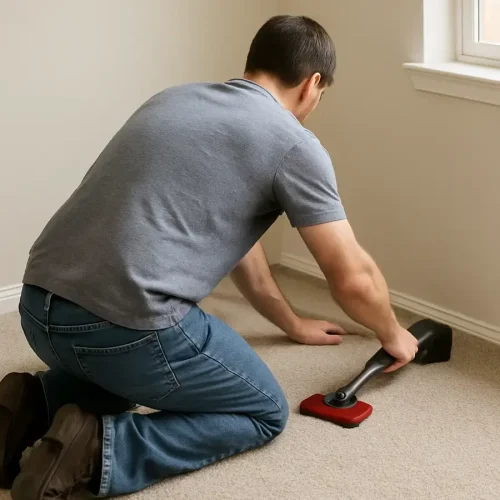
Notes From Our Happy Customers
Leading Persian Carpet Supplier Across All Emirates of the UAE
We supply high-quality Persian rugs to customers across every emirate in the UAE. Whether you’re in Dubai, Abu Dhabi, Sharjah, Ajman, Umm Al Quwain, Ras Al Khaimah, Fujairah, or Al Ain (Abu Dhabi) — we deliver authentic, hand-knotted Persian rugs Dubai directly to your home or business. At Risala Furniture and Interiors LLC, we ensure fast service, expert guidance, and Persian carpet antique selections that match your space and style, wherever you are.
FAQs About Persian Carpets
A. Yes, all our Persian carpets are 100% hand-knotted by skilled artisans using traditional weaving techniques and natural materials.
A. We use premium wool, pure silk, or a blend of both. All dyes are natural and chemical-free, ensuring safe use and long-lasting color.
A. Regular vacuuming is enough for daily care. For deeper cleaning, we recommend professional carpet cleaning services once every 12–18 months.
A. With proper care, a high-quality Persian carpet can last 10 to 20 years or even longer, often increasing in value over time.
A. Yes, we serve all major cities in Saudi Arabia, Oman, and Qatar, including Riyadh, Muscat, and Doha, along with the wider Gulf region and Middle East.




